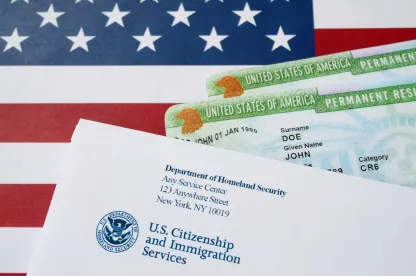U.S. Citizenship and Immigration Services’ (USCIS) final rule on public charge inadmissibility has been in effect since December 23, 2022. Accordingly, USCIS released a revised Form I-485, Application to Register Permanent Residence or Adjust Status, for applications submitted on or after December 23, 2022, for adjustment of status to comply with the newly codified rule. The new form includes additional questions for applicants subject to the public charge rule on finances, skills, certain public benefit history, and institutionalization history.
The rule is largely a codification of previously issued USCIS guidance on this topic, with some additional clarification and detail. Under the final rule, public charge inadmissibility applies to those who are “primarily dependent” on government programs for support. The final rule further specifies certain public benefits that may trigger public charge inadmissibility, including the following: Supplemental Security Income (SSI); Temporary Assistance for Needy Families (TANF); state, tribal, territorial, or local cash benefit programs for income maintenance; and long-term institutionalization at government expense.
USCIS has explicitly omitted the following public benefits from consideration for purposes of making a public charge determination:
-
Nutritional programs, such as the Supplemental Nutrition Assistance Program (SNAP) and the Special Supplemental Nutrition Program for Women, Infants, and Children (WIC)
-
Health programs, such as the Children’s Health Insurance Program (CHIP), Medicaid (other than for long-term institutionalization), and health insurance through the Affordable Care Act
-
Housing programs and benefits
-
Education/childcare programs, such as Head Start, assistance under the Child Care and Development Block Grant (CCDBG) Act, and foster care and adoption benefits
-
Disaster relief programs
-
Earned benefits, such as Social Security, government pensions, and unemployment insurance
-
Other miscellaneous benefits, such as job training programs; tax credits, such as the Child Tax Credit (CTC) or Earned Income Tax Credit (EITC); home energy assistance programs; and assistance provided by local communities through public or private nonprofit organizations
Based on the totality of the circumstances, a noncitizen whom USCIS determines is likely to become primarily dependent on government benefits for support may be denied permanent residency based on a public charge ground of inadmissibility.




 />i
/>i

